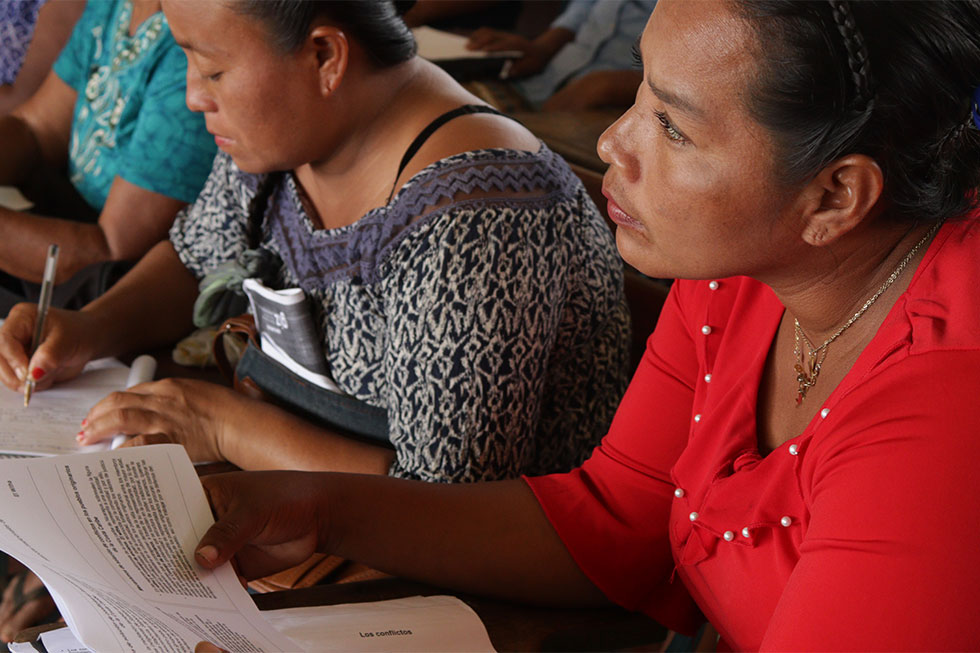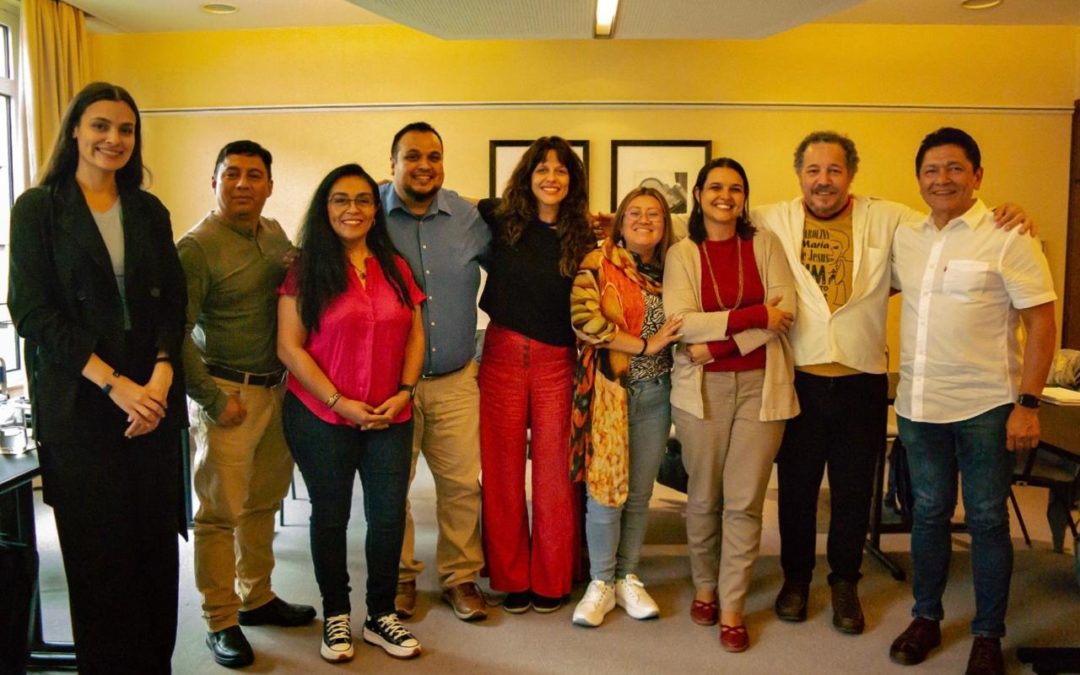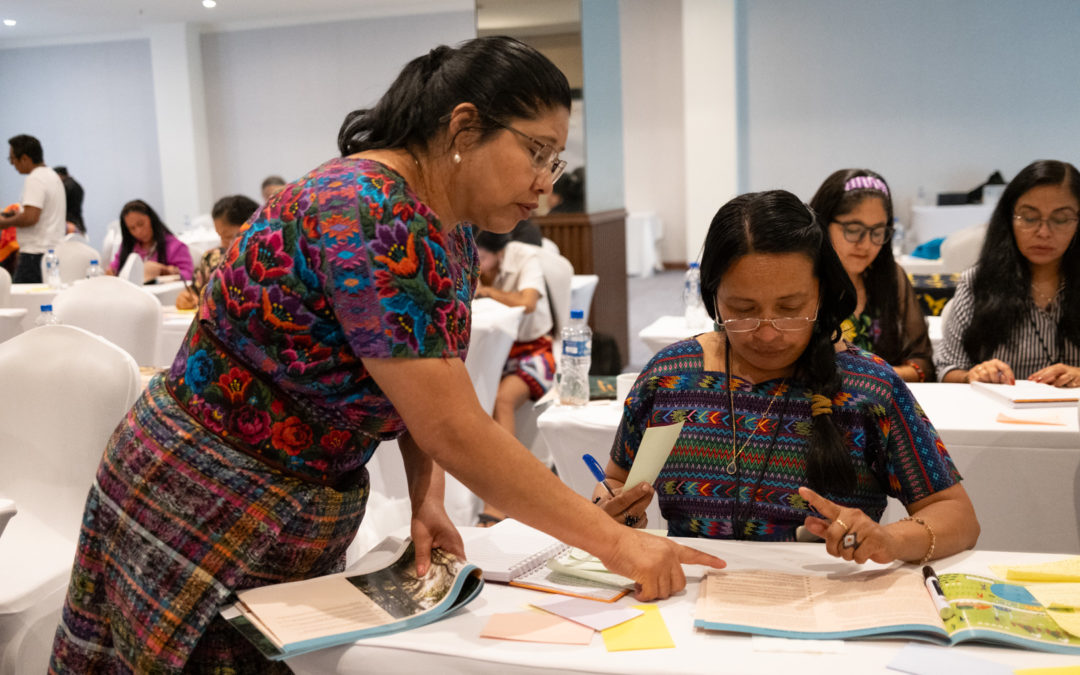38 indigenous and local community women leaders, representatives of the ten indigenous peoples and forest organizations that make up the Mesoamerican Alliance of Peoples and Forests, and who are representatives of the gender agenda of their communities in the Coordinator of Territorial Women Leaders of Mesoamerica (CMLT) , began the training process “Strengthening of spokesperson and representation capacities”. This Tuesday, October 5, the leaders participated in the first workshop of this cycle.
The objective of the workshops is to provide tools and broaden the participants’ knowledge on environmental issues and the rights of indigenous and territorial women, to potentiate their skills as an effective spokesperson in their territories and in external, national and international spaces, to defend and make visible the agenda of their forests and peoples.
The first workshop was on “Prior, Free and Informed Consultation”, taught by Jadder Lewis, representative of Land is Life-CEDEA.
The following modules, coordinated by Wolfgang Alejandro Bonilla, doctor in Peace, Conflict and Democracy, specialist in indigenous and restorative justice, will address topics such as: Local and International Climate Agenda, Collective Rights and Territorial Governance Systems, History of women’s rights from Beijín, Entrepreneurship and self-financing, Indigenous Administration of Justice, What is Climate Change and what is its relationship with Indigenous Peoples and Local Communities, and Empowerment of Indigenous women to strengthen political participation.
The training will be given virtually, for two intensive hours, during the month of October and will be given by a series of international experts representing key institutions in the global climate agenda such as FAO, FSC and UNDP.
The participants of the workshops are indigenous and community women leaders, representatives of Burdongan (Gunayala Women) and AMARIE (Association of Emberá-Neka Artisan Women) of Panama, Association of Kábata Konana and RIBKA Women of Costa Rica, Government of Mayangna Women and YATAMA of Nicaragua, MASTA and FEPROAH (Federation of Agroforestry Producers) of Honduras, ACOFOP and the National Alliance of Forest Organizations of Guatemala.



